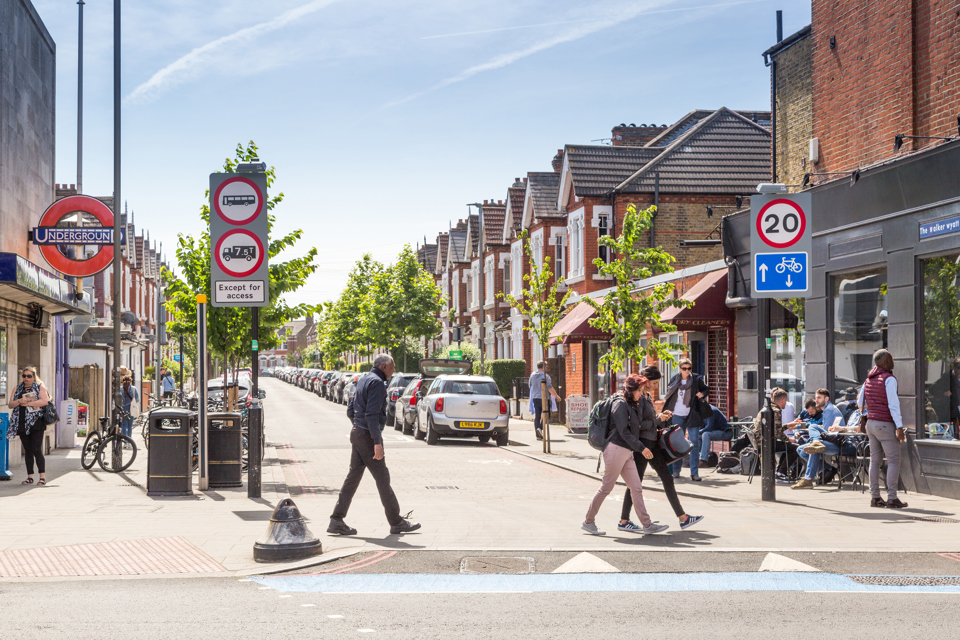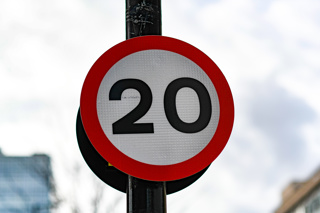Collisions resulting in death or serious injury decreased by a quarter (25%) after speed limits were lowered in London, new data suggests.
The decline was recorded at sites monitored on the Transport for London (TfL) Road Network (TLRN), where the speed limit has been lowered to 20mph.
The TfL figures also show that collisions involving vulnerable road users decreased by more than a third (36%).
Lowering speed limits is a key part of the Mayor's Vision Zero goal to eliminate death and serious injury from London's transport network and to enable more walking and cycling in the capital.
In March 2020, TfL introduced a 20mph speed limit on all of its roads within the central London Congestion Charging zone as part of its Vision Zero commitment to eliminate death and serious injury on the capital's roads by 2041.
Currently, more than half of London’s roads have a 20mph speed limit, of which almost 110km (68 miles) is on TfL’s network.
TfL is now working to lower speeds on 220km (136 miles) of its roads by 2024 in inner and outer London and plans to introduce a new 20mph speed limit on more than 28km (17 miles) of roads in Camden, Islington, Hackney, Tower Hamlets and Haringey in March.
Will Norman, London's walking and cycling commissioner, said: “Sadly, more than 4,000 people are killed and seriously injured on London's roads every year. Lowering speeds is one of the most important things we can do to reduce road danger and make it easier and safer for people to walk, cycle and use public transport, creating a safer, greener London for everyone.”
Monitoring of the 20mph schemes in London shows that since they were introduced, the number of collisions has reduced by 25% (from 406 to 304), and collisions resulting in death or serious injury have reduced by 25% (from 94 to 71).
Since the 20mph speed limits have been introduced, collisions involving vulnerable road users have decreased by 36% (from 453 to 290), while collisions involving people walking have decreased by 63% (from 124 to 46).
Brake, the road safety charity, which has been a long-term supporter of 20mph speed limits, welcomed the reduction.
Scott Williams, head of programme delivery at Brake, said: “We are encouraged by the reduction in collision numbers, including those involving the most vulnerable road users, following the introduction of the 20mph schemes.”
In 2020, speed was a contributing factor to almost half (48%) of fatal collisions. Since the 20mph speed limits have been introduced across London, there have been reductions of 1.7-5mph across most sites surveyed.
Analysis of journey times, traffic flows and speeds suggest that the 20mph speed limit has not increased congestion, according to TfL.
It says it will be undertaking further quantitative analysis to assess the impact on smoothing traffic flows.





















Rosco7010 - 06/03/2023 15:07
TfL are using biased statistics to back up their case. I am in favour of correctly used 20mph limits, but using statistics of accident data from March 2020 has a clear and obvious bias. As TfL will be fully aware of the notable events that happened in March 2020, the use of this data is clearly to support a case they could not otherwise justify. Especially in the perception of congestion. TfL should be honest, they are rolling out 20mph zones irrespective of the data. And generally I support that, but not the lies and manipulation used to achieve it.